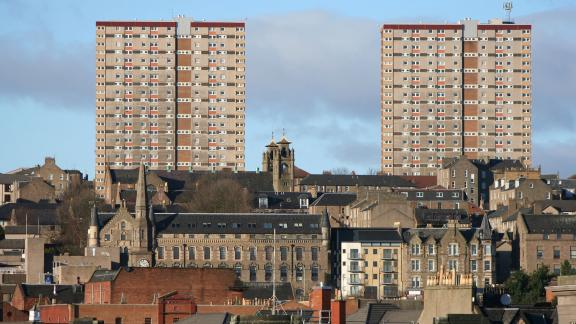NHS Confederation statement ahead of BBC One’s Panorama

BBC One’s Panorama on Monday evening is expected to include analysis from the Health Foundation that will predict that there could be an additional 7.5 million people in need of treatment who have not come forward yet.
Also, the programme is expected to include findings from the Kings Fund and Healthwatch England, which will show some patients’ experiences of waiting for treatment has not been positive and has taken its toll on their health and wellbeing. Additionally, the findings will show that people in the most deprived parts of the country are likely to wait longer than those in more affluent areas.
Last Friday (24 September), the NHS Confederation published its ‘Manifesto for Recovery’ setting out what the NHS will need to ensure it is well-equipped to respond effectively to the significant increase in demand for its services brought about by the Covid-19 pandemic.
In this, the NHS Confederation called for a ‘generational change’ in how patients in England are treated so that the NHS can address spiralling waiting lists and ensure the ‘missing’ 7 million patients who are not on the official waiting list can get the care they need.
Matthew Taylor, chief executive of the NHS Confederation, said:
“Health leaders have been clear that a radical overhaul is needed to how the NHS engages with and supports its communities in the wake of the pandemic so that everyone gets the treatment and support they need.
“More than 5.6 million people are now on the official waiting list for elective care and in our own report last week, we revealed that there are at least 7 million more people in need who have not been identified yet. This is deeply concerning for all parts of the NHS whose teams have worked tirelessly over the last eighteen months to support their local communities.
“But they are worried that this won’t be enough. 82% of our members we surveyed recently are not confident the NHS will be able to meet public expectations on treatment and waiting times and two thirds said that current understaffing is putting patient safety and care at risk.
“Despite these challenges, the NHS is doing every it can and is making significant inroads. Primary care teams have carried out 100 million appointments during the pandemic, including face-to-face and in people’s homes, and over the last four months, around five million patients began their elective treatment, which is around 90% of pre-pandemic levels. Elsewhere, around half a million people were checked for cancer in June and July, amongst the highest numbers on record, and there has been a 32% increase in people starting cancer treatment compared to a year ago.
“A big part of the NHS’s focus now needs to be on supporting patients on the current waiting list, alongside finding people who have not come forward as we know many of them will be from deprived and marginalised groups. Health leaders are committed to doing this with the same rigorous determination that they have shown with the Covid vaccination programme, where they have reached out to local communities in imaginative ways, including to places of worship and social clubs.
“The pandemic has caused an unprecedented level of demand for healthcare but its legacy must be that we started to turn the tide on deprived and marginalised groups experiencing worse outcomes in their care.”


